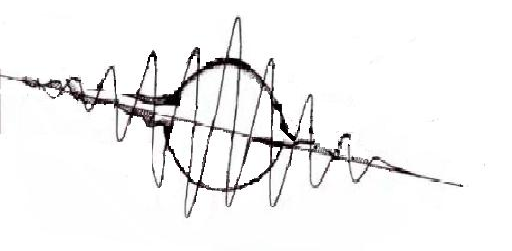A phenomenon that scientists have theorized about for over 20 years has finally been observed in the lab. Researchers from the University of Chicago have announced the first experimental evidence for “quantum superchemistry”—accelerated chemical reactions when particles are prepared in the same quantum state.
The findings, published in Nature Physics, confirm theories about how quantum mechanics can dramatically speed up chemistry under highly controlled conditions. While chemists normally rely on the random collisions of individual molecules to react, particles in shared quantum states behave collectively.
This breakthrough opens up a new world of possibilities in quantum-enhanced chemical engineering. The researchers say their work is just the beginning of understanding how quantum effects can allow more precise control over chemical systems. Manipulating quantum interactions could lead to groundbreaking applications in computing, materials science, precision measurements, and more.
Professor Cheng Chin, who led the study, says it marks “a very exciting era” in exploring how far quantum knowledge can be advanced with larger, more complex molecules. But their first step was proving a longstanding theory by coaxing a simple system of cesium atoms into synchronised quantum interactions.
The Chicago team’s observation of quantum superchemistry confirms that chemical groups can be sped up tremendously when handled as an entangled collective. This new subfield of quantum chemistry promises to open new frontiers in technological innovation.
Scientists Discover First Evidence of Quantum Superchemistry
Researchers from the University of Chicago announced the first experimental evidence for quantum superchemistry, a phenomenon predicted over 20 years ago. In quantum superchemistry, atoms and molecules in the same quantum state undergo accelerated chemical reactions as a collective group.
The study, published in Nature Physics, was led by Professor Cheng Chin and graduate students Zhendong Zhang and Shu Nagata. They cooled cesium atoms close to absolute zero to force them into the same quantum state. When the atoms reacted to form molecules, the reactions occurred faster than normal chemistry would predict. The findings match theoretical predictions about quantum superchemistry.
This breakthrough opens up a new field of quantum-enhanced chemistry. Potential applications include:
- Developing new techniques in quantum computing and information processing using molecules as qubits
- Testing fundamental physical laws and symmetries with precise molecular measurements
- Exploring how more complex molecules behave collectively in quantum states
The researchers plan to continue experimenting with larger, more complicated molecules. Professor Chin stated this could expand our understanding of “how far we can push our knowledge of quantum engineering.”
The study provides the first evidence that groups of atoms and molecules undergo accelerated chemical reactions when prepared in a shared quantum state. This confirmation of quantum superchemistry theory highlights the potential for developing novel quantum technologies and achieving new insights into the quantum world.
Early Research
- Early quantum chemistry models from the 1920s-1950s that first described chemical systems using quantum mechanics, by scientists like Linus Pauling, Erwin Schrödinger, Erich Hückel, etc.
- Theoretical proposals in the 1980s-1990s on using quantum entanglement and coherent control to optimize chemical reactions by Graham Fleming, Ilya Finkelstein, David Tannor and others.
- Foundational work on ultracold chemistry and controlling reactions of cooled atoms/molecules by Gerard Meijer, Rudolf Grimm, and Johannes Hecker Denschlag in the 1990s-2000s.
- Recent advances in building and manipulating large, complex quantum systems that made this experiment possible.
Future Directions
The realization of quantum superchemistry opens up many avenues for future research and applications. Chin and his colleagues plan to continue exploring collective reactivity using larger, more complex molecules. Their goal is to advance our engineering capabilities in the quantum computing, information processing, and materials science realms. Other researchers envision using precisely controlled quantum systems to test fundamental physical theories with unparalleled accuracy.
While this proof-of-concept study was a small-scale demonstration, it marks a turning point in chemists’ abilities to direct quantum outcomes. Now that the phenomenon of quantum superchemistry has been experimentally confirmed, scientists can get to work on translating its potential into transformative new technologies. The University of Chicago discovery ushers in an exciting new era of innovation at the intersection of quantum physics and chemistry.
How far we can push our understanding and our knowledge of quantum engineering, into more complicated molecules, is a major research direction in this scientific community.”
–Cheng Chin, a professor of physics
Citation: Zhang, Z., Nagata, S., Yao, K-X., & Chin, C. (2023). Many-body chemical reactions in a quantum degenerate gas. Nature Physics, doi:10.1038/s41567-023-1234-56.
Image Credit: Public Domain Electromagnetic Radiation: Wave x Particle Wikimedia

